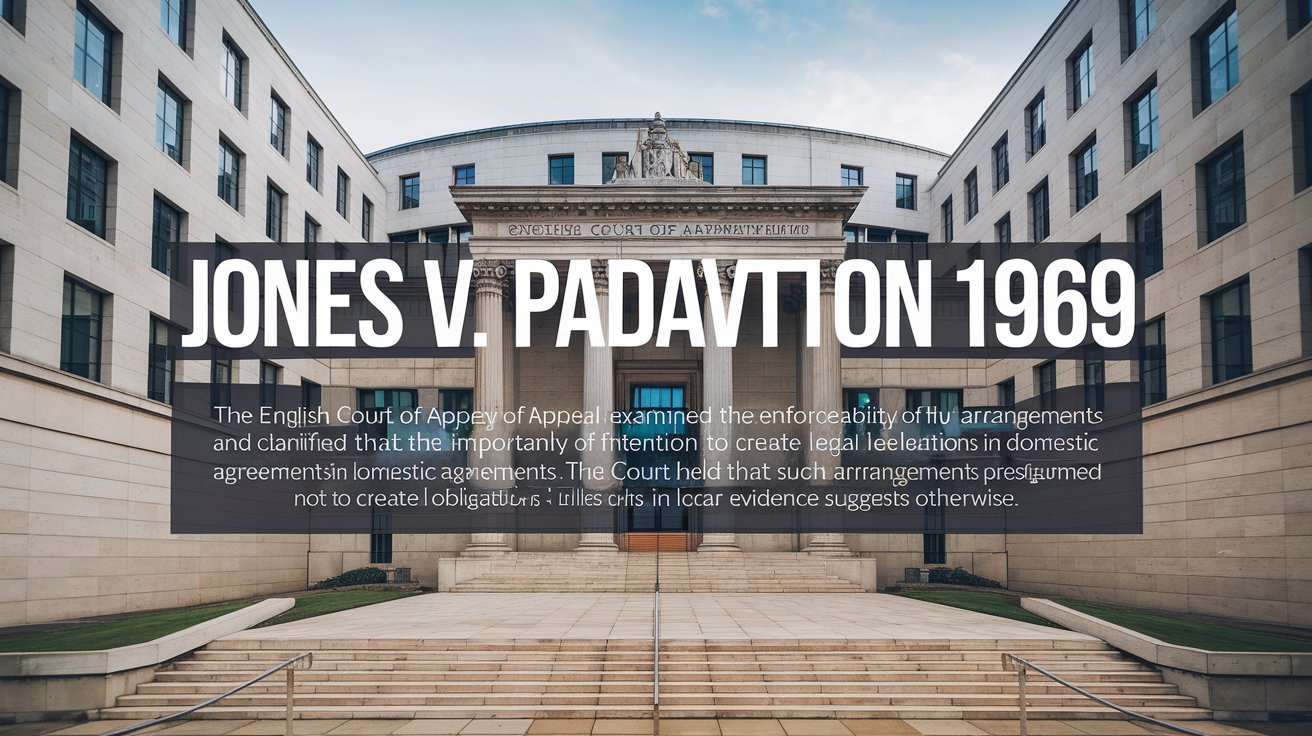Jones v. Padavatton 1969 (Case Summary)

In Jones v. Padavatton, the English Court of Appeal examined the enforceability of family arrangements and clarified the importance of intention to create legal relations in domestic agreements. The court held that such arrangements are generally presumed not to create legal obligations unless clear evidence suggests otherwise.
Table of Contents
ToggleFacts of Jones v Padavatton
- The plaintiff, Mrs. Jones, was the mother of the defendant, Ms. Padavatton. Mrs. Jones promised to provide financial support if Ms. Padavatton moved to England to study for the Bar.
- After her daughter moved to England, Mrs. Jones purchased a house where Ms. Padavatton could live and rent out rooms to cover her expenses. This arrangement replaced the original promise of financial support.
- Several years later, the relationship between mother and daughter deteriorated. Mrs. Jones sought to reclaim possession of the house, arguing that the arrangement was a family understanding, not a legally binding agreement.
- Ms. Padavatton resisted and contended that her mother’s promise created a legally binding contract, giving her the right to stay in the house.
Issues framed
- Whether the arrangement between Mrs. Jones and Mrs. Padavatton creates a legally binding contract?
- Whether there is a mutual intention to create legal relations in the family agreement?
Judgment of Cox v Hickman
The Court of Appeal relied on the principle that family and domestic arrangements are presumed not to create legal relations, unless evidence demonstrates otherwise.
The court held that the agreement between Mrs. Jones and Mrs. Padavatton was a domestic arrangement. The arrangement lacked the formalities and clarity required to constitute a contract. The court noted that the daughter’s reliance on her mother’s promise did not automatically convert the arrangement into a legally enforceable agreement.
The Court ruled in favor of Mrs. Jones, holding that the arrangement was a domestic understanding and not a legally binding contract. Mrs. Jones was entitled to reclaim possession of the house.





